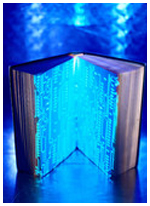Copyright
Judge Seeks to Speed Settlement Talks in Google Books Case
 A federal judge pressed negotiators yesterday to complete a reworked settlement to resolve litigation over Google Inc.'s plan to establish the world's largest digital library without running afoul of the Copyright Act.
A federal judge pressed negotiators yesterday to complete a reworked settlement to resolve litigation over Google Inc.'s plan to establish the world's largest digital library without running afoul of the Copyright Act.
Second Circuit Judge Denny Chin warned lawyers on both sides to make meaningful progress in short order or he will decide whether the publication of "snippets" — or small sections of books — online without the permission of the copyright holders constitutes "fair use" under §117 of the act.
"What's the prognosis?" Judge Chin asked Authors Guild attorney Michael J. Boni of Boni & Zack in Bala Cynwyd, Pa., and Google attorney Daralyn Durie of Durie Tangri in San Francisco during a brief status conference. "I'm a little concerned. This is a six-year-old case" said Judge Chin, who retained the case when he moved from the Southern District to the U.S. Court of Appeals for the Second Circuit.
In March, Judge Chin rejected a $125 million deal between the Internet company and authors and publishers claiming copyright infringement, saying the settlement of two lawsuits challenging the mass scanning of books and the display of "snippets" for online searching gave too much away to Google.
The lawsuit, The Authors Guild v. Google Inc., 05 Civ. 8136, was brought in 2005 by authors and publishers after Google failed to obtain copyright permission to scan the books. The parties reached a tentative settlement over two years ago and Judge Chin had scheduled a fairness hearing in October 2009. But he was forced to postpone it when the U.S. Department of Justice argued that the agreement probably violated antitrust law, could decrease competition among U.S. publishers and drive up prices for consumers (NYLJ, Sept. 22, 2009).
The parties went back to the table and produced a 166-page settlement, which Judge Chin rejected in March. That deal covered a class of all persons or their heirs, successors and assigns, who, as of Jan. 5, 2009, owned a U.S. copyright interest in books or inserts implicated by a use authorized under the settlement. It consisted of both an author subclass and a publisher subclass and would have authorized Google to continue digitizing books and inserts, sell subscriptions to an electronic books database, sell online access to individual books, sell advertising on pages from books and make other uses.
Under its terms, rights holders would keep the rights to authorize others, including competitors of Google, to use books in any way and Google would pay those rights holders 63 percent of all revenues from those uses. Rights holders could exclude their works from any of the uses and dictated that their books be removed from the database.
But Judge Chin concluded that the settlement would give Google "significant rights to exploit entire books, without the permission of the copyright holders" and "would give Google a significant advantage over competitors, rewarding it for engaging in wholesale copyrighted works without permission, while releasing claims well beyond those presented in the case" (NYLJ March 23, 2011).
The judge acknowledged that there were many advantages to the 166-page agreement. He said more books would be made more accessible, new audiences would be generated to the benefit of authors and publishers and older books and out-of-print books "many of which are falling apart buried in library stacks—will be preserved and given new life."
The judge reminded the parties that the litigation was first commenced over the publication of snippets of books and other works for online searching and was not a fight over "the sale of completed copyright works."
Nonetheless, he said, under the settlement, Google has scanned more than 12 million books into its library since 2004, and would have "the right to sell full access to copyrighted works that it otherwise would have no right to exploit"—and would control the digitalization of millions of books it obtained through "wholesale, blatant copying."
Accelerated Schedule
He again sent the parties back to the negotiating table, telling the lawyers that many of his concerns could be addressed if the framework was converted from an "opt-out settlement" to an "opt in settlement." Google has opposed an "opt-in" settlement format from the outset.
Yesterday, Mr. Boni said an opt-in approach was the "precise settlement we have been aiming for."
But Mr. Boni said there are still hurdles for the parties to clear before a new settlement could be forged and he asked for more time.
"These are very complicated, complex issues that require us to delve into the dog days of summer," Mr. Boni told the judge.
Ms. Durie, Google's attorney, let Mr. Boni describe the status of negotiations. She only commented when Judge Chin offered the services of a magistrate judge or a senior judge to help the talks.
She said there were "business issues in addition to legal issues we're trying to work through."
After the hearing, she declined to comment, pointing toward a Google spokesman, Gabriel Stricker. He said Google had been "working closely" with the authors and publishers to explore options after the judge rejected the previous settlement. "Regardless of the outcome, we'll continue to make books more discoverable and useful through Google Books and Google eBooks."
Judge Chin was amenable to a little more time for talks, but he insisted, "If the matter is not resolved, I'm going to [set] a relatively tight schedule for discovery."
The accelerated schedule, he said, would force the parties to come to terms and head off a decision by the court on the issue of fair use.
Judge Chin said he would set such a schedule unless the parties say they are close by the next court date, Sept. 15, because "a deadline always makes the parties negotiate more effectively."
(Published by Law.com - July 20, 2011)